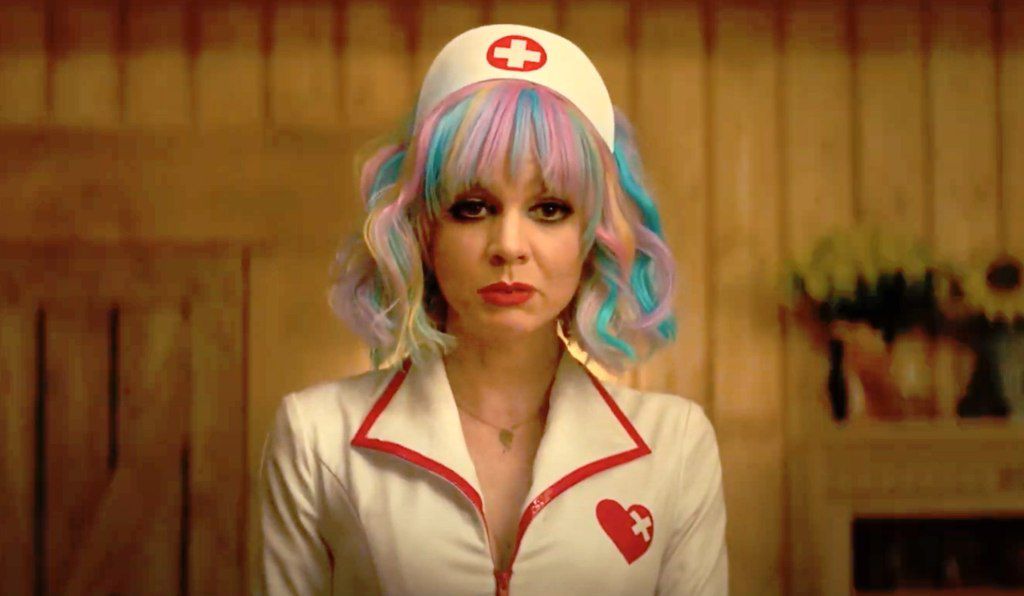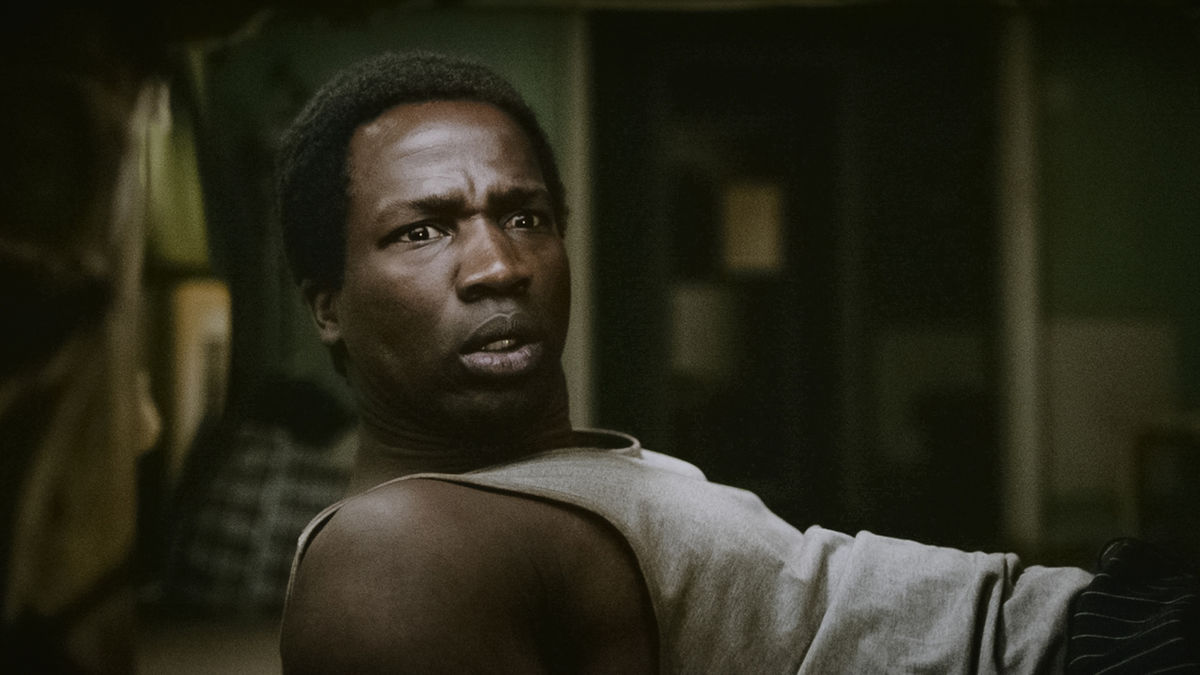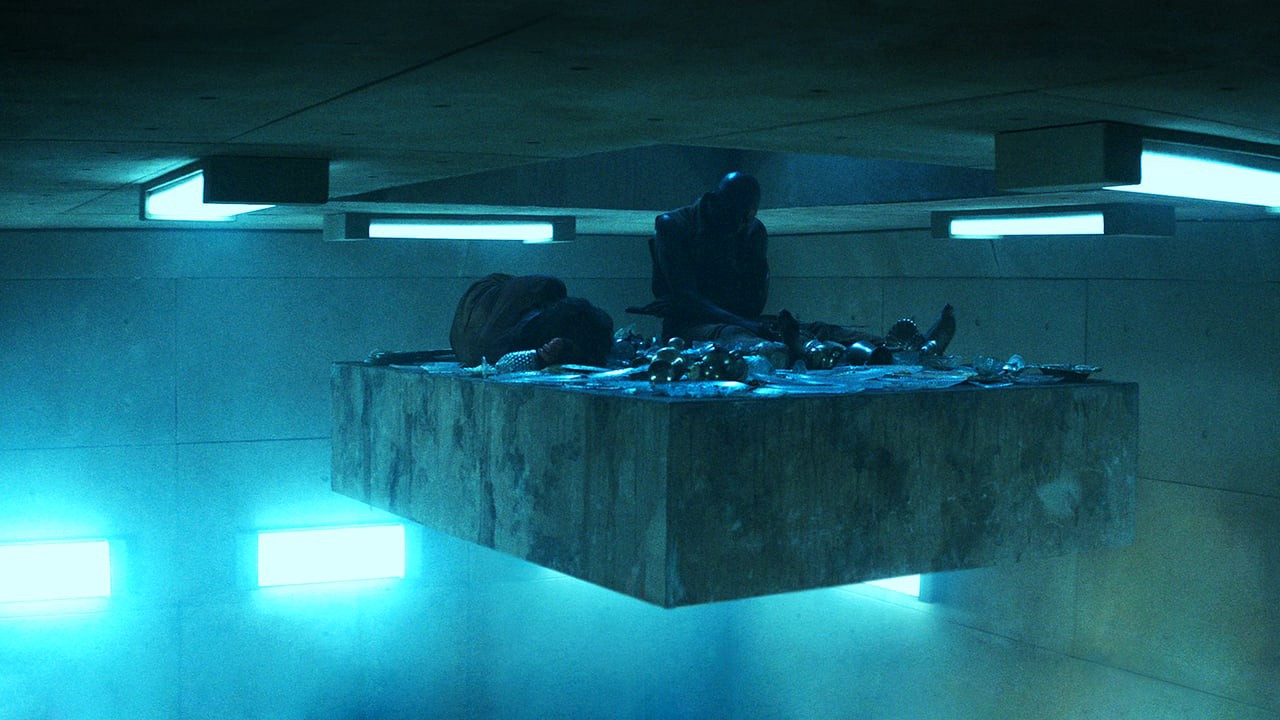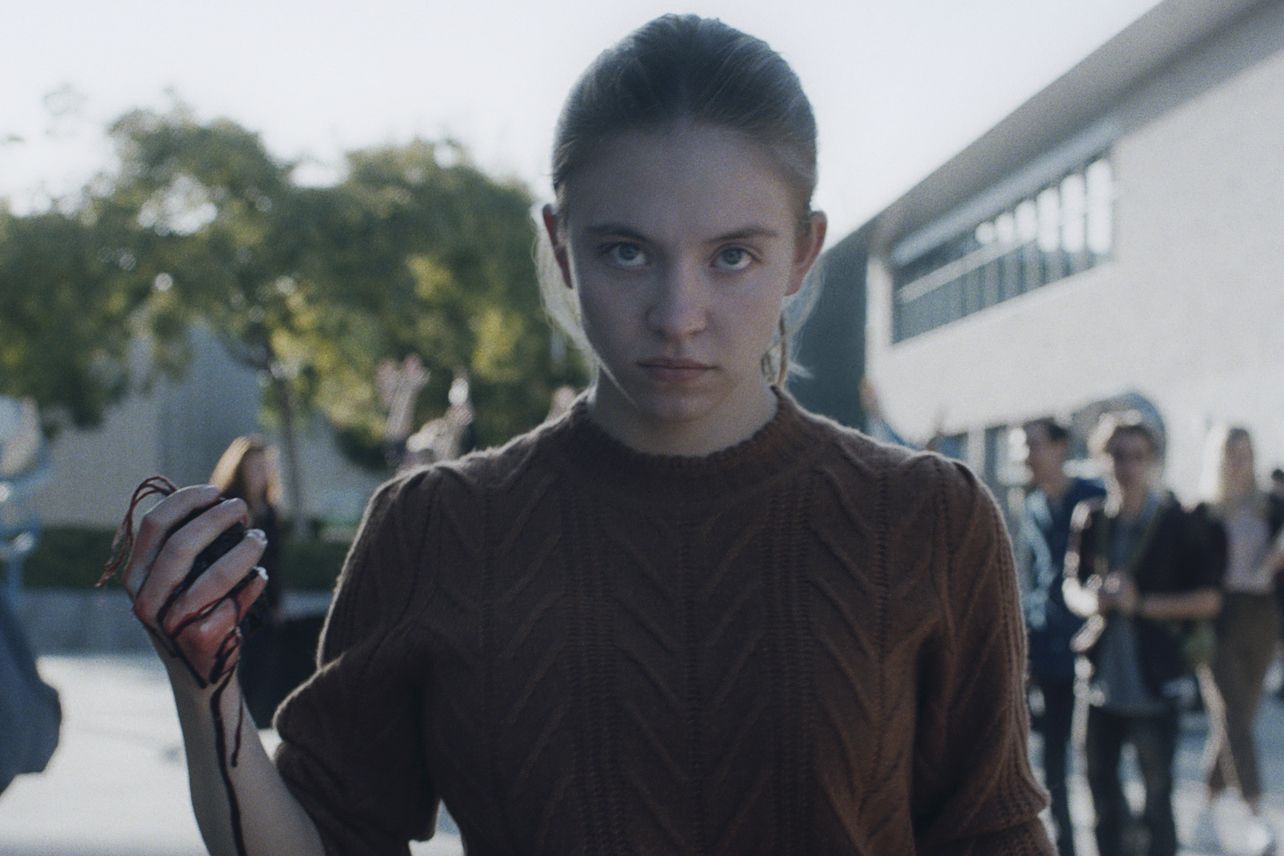6. Promising Young Woman – Emerald Fennell

In 2016, a Stanford college student named Brock Turner assaulted and raped a female student while she was drunk and unconscious, leading him to be convicted of several assault charges. Even though his actions were heinous and deserved harsh punishment, judge Aaron Persky only gave him a six month sentence that was eventually reduced to three, and he even referred to Turner as a “promising young man.” This, along with media outlets that also said he was “promising,” are presumably what inspired the title of 2020’s Promising Young Woman. In this tonally unique and darkly funny debut, director/writer Emerald Fennell doesn’t just depict rape culture and the predatory attitude of many “nice guys” out there, she also shows how our whole system often enables privileged men to get off easy while victims are either forgoten or forever tied to their attacker.
Promising Young Woman starts off with a fantastic opening scene that introduces us to our protagonist: a woman named Cassie (Carey Mulligan) who seems to be highly inebriated at a bar by herself. Naturally, a self proclaimed “nice guy” offers to help her get home, but he takes her to his apartment instead and starts to kiss her and touch her without her consent. This is when Cassie reveals that she is not really drunk at all, just participating in her weekly hobby of teaching men a lesson about their behavior. It turns out that this is really all that Cassie does outside of her job at a coffee shop, but she’s got a good reason involving something terrible that happened to her friend, Nina, years ago. While Promising Young Woman certainly fits into the “rape revenge” subgenre in terms of its plot, Fennell also sets the film apart from others in that vein by avoiding gruesome scenes of abuse and revenge and by focusing on the different roles that all the characters have in Cassie’s grief and Nina’s trauma.
7. His House – Remi Weekes

Along with Relic (2020), His House is another debut in 2020 that effectively uses horror to reflect upon some very real and intense life experiences. In this case, it’s the experience of refugees, specifically those fleeing from South Sudan as a result of the danger caused by the South Sudanese Civil War. While it did come to an end in February 2020, this war lasted over six years, resulting in hundreds of thousands of deaths and the displacement of millions of other individuals. His House provides some viewers with the opportunity to gain some knowledge about the horrors of this displacement, while also giving us a unique haunted house story that sets itself apart from others with the inclusion of Sudanese culture and mythology.
The debut from director Remi Weekes follows Bol (Sope Dirisu), Rial (Wunmi Mosaku), and their daughter, Nyagak (Malaika Abigaba), as they flee from South Sudan sometime during the civil war. Traveling on a crowded boat in the middle of a dangerous storm, some are cast overboard and lost at sea, including Nyagak. Months after escaping the war, losing their daughter, and arriving in Britain, they are finally granted asylum and sent to live in a large, dilapidated home in London. It isn’t long before they both begin to hear voices and experience strange visions of their past within the home, making it harder and harder for them to act “good” enough to get official citizenship and stay in Britain. Beyond these frightening manifestations is a story about trauma and loss and the ways that it can cause a rift between two close individuals who are responding to the same trauma in dramatically different ways.
8. Babyteeth – Shannon Murphy

If you happen to be searching for a highly emotional experience in a 2020 film, look no further than the Australian dramedy, Babyteeth. Directed by Shannon Murphy in her debut and written by Rita Kalnejais (adapted from her stage play), Babyteeth involves a subject that has been occasionally used as a predictable tear-jerker over the years: a teenager living with a terminal illness. That simple premise on its own may be enough to either encourage or deter viewers from watching, but no matter where you stand, this is no average story, nor is it predictable in the way that Murphy and Kalnejais tell it. On the contrary, Babyteeth forces the viewer to see past initial expectations and surface-level stereotypes and look at something that feels much more real and beautifully nuanced.
The terminally ill teenager in this case is Milla (Eliza Scanlen), a 16 year old girl who has been diagnosed with an unspecified type of cancer. When she meets a scraggly 23 year old drug dealer named Moses (Toby Wallace), she finds newfound excitement in her attraction and friendship with him, much to the dismay of her parents who view Moses as nothing but trouble. After Milla meets Moses, Babyteeth is non-linear in the sense that it often hops around between different points in Milla’s illness without providing a clear idea of how much time has really passed.
This structure itself prevents viewers from building up expectations of how the different characters will act and how they will be feeling at any given point in the movie, and it happens to be a fantastic choice because it allows the focus to be on the vast changes and emotions passing through Milla and everyone else around her without making her illness the major point of discussion or even having to mention the word “cancer” at all.
9. The Platform – Galder Gaztelu-Urrutia

A high-concept film is typically defined by a simple, yet intriguing plot hook that can attract an audience with its concept alone. While high-concept ideas have been used across all genres, nothing is quite as satisfying as one that roots itself in horror and uses a simple horror premise to explore more complex themes. Think Jaws (1975) and An American Werewolf in London (1981), or for some more recent examples, Get Out (2017) and It Follows (2015). The Platform, also known as El Hoyo (The Hole), is a 2020 debut from director Galder Gaztelu-Urrutia that definitely fits the same bill.
The concept in The Platform can be, as most high-concept films should be, easily explained: a prison tower made up of many floors feeds its prisoners by sending one single platform with tons of food on it down the middle of the tower every single day. There is enough food on the platform for everyone in the prison to be able to eat, but this is only possible if enough people only take what they need and don’t overeat. As you might expect, this is never actually possible.
The entire film takes place in this limited setting where the protagonist, Goreng (Iván Massagué), has voluntarily placed himself in exchange for a diploma. The clever social commentary on the selfish and unequal way that society functions is quite apparent in the concept itself, but Gaztelu-Urrutia and writers David Desola and Pedro Rivero still manage to add thematic layers that keep it interesting throughout. Not only that, but The Platform is also just a very gruesome and occasionally disgusting film that shows that these filmmakers are not afraid to reduce violence and other graphic content at the expense of their message.
10. Nocturne – Zu Quirke

The fourth horror film to make it on this list is Nocturne, which also happens to be the fourth and final part of the “Welcome to the Blumhouse” film series released on Amazon Prime in October. Blumhouse, the production company known for its focus on horror, has been subjected to many differing opinions over the years about the overall quality of all their content. However, there is one aspect of Blumhouse that is undeniably respectable: the opportunities that they constantly provide for emerging filmmakers trying to break out into the industry, which is made possible by low production costs and the relatively lower costs of many horror films in general. In “Welcome to the Blumhouse”, Zu Quirke got the opportunity to write and direct Nocturne, a film that stands out visually and thematically among the others in the series.
The wonderful Sydney Sweeney (Euphoria) stars as Juliet Lowe, a girl entering her senior year at a respected performing arts school with her twin sister, Vivian (Madison Iseman). Both sisters are talented classical piano players, but Vivian typically outshines Juliet with her confidence, passion, and acceptance into Juilliard, a real and prestigious arts school located in New York.
When a fellow student named Moira suddenly commits suicide, they both audition to take her place in the senior showcase, where Juliet decides to defy Vivian by playing the exact same piece as her. Before this audition day, Juliet also happens to stumble upon Moira’s class notebook, which is filled with sheet music and creepy images detailing the path to a faustian bargain. While the concept of a faustian bargain is nothing new in film or storytelling in general, Sweeney’s compelling performance matches well with Quirke’s addicting visual style to create something that feels refreshing, making it one of the more underrated horror films to come out this year.